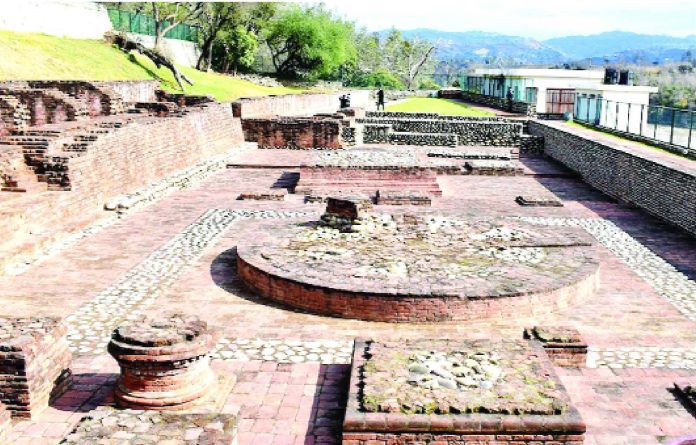The archaeological heritage of the Jammu plains is now being rediscovered, shedding light on its crucial role in connecting northern India’s highlands with the Punjab plains. Jammu’s archaeological wealth showcases diverse cultural phases that reflect its importance as a hub of ancient trade and interaction. Two key sites in Jammu’s Akhnoor belt-Manda, an Indus Valley site, and Malpur, a Neolithic settlement-underscore the region’s significance as a historical corridor linking the Harappan civilisation in the south with the highlands to the north. However, archaeological exploration in Jammu has long been fragmented, resulting in patchy historical discourse. Recent reinvestigations, particularly since 2015, have provided fresh insights into the area’s settlement patterns, revealing a thriving cultural and trade network. Despite scant evidence of Harappan-era settlements, the strategic location of Jammu played a key role in the Uttarapatha trade route, fostering smaller settlements that flourished along the RS Pura and Akhnoor plains. Notable discoveries, such as Rangmahal pottery, have shed light on the region’s cultural exchange and continuity through the centuries, while Ambaran, an important Buddhist site, signifies the spread of Buddhism during the Kushana period.
Today, archaeological research in Jammu is embracing advanced techniques such as remote sensing and GIS mapping, aimed at unravelling the transformation of the region’s landscape over millennia. These initiatives, led by researchers like Navjot Kour at the Catalan Institute of Classical Archaeology in Spain, are integral to deepening our understanding of Jammu’s historical role as a trade hub and cultural melting pot. Preserving Jammu’s archaeological sites requires a multipronged approach. Engaging the local community, especially youth, in heritage conservation, alongside promoting academic research, is essential to safeguarding this legacy. Heritage outreach programmes, workshops, and collaborative efforts between NGOs and scholars will ensure that Jammu’s forgotten past is rediscovered and cherished, contributing to a broader cultural consciousness that will enrich both the region and its people. As these efforts continue, Jammu’s plains, once a vital link in ancient trade routes, may yet again reclaim their place in the narrative of India’s rich archaeological heritage.
Trending Now
E-Paper


